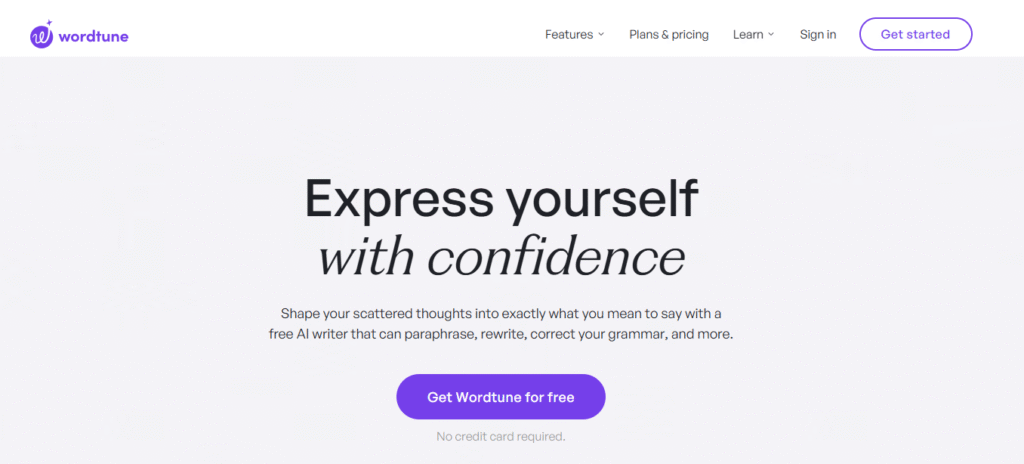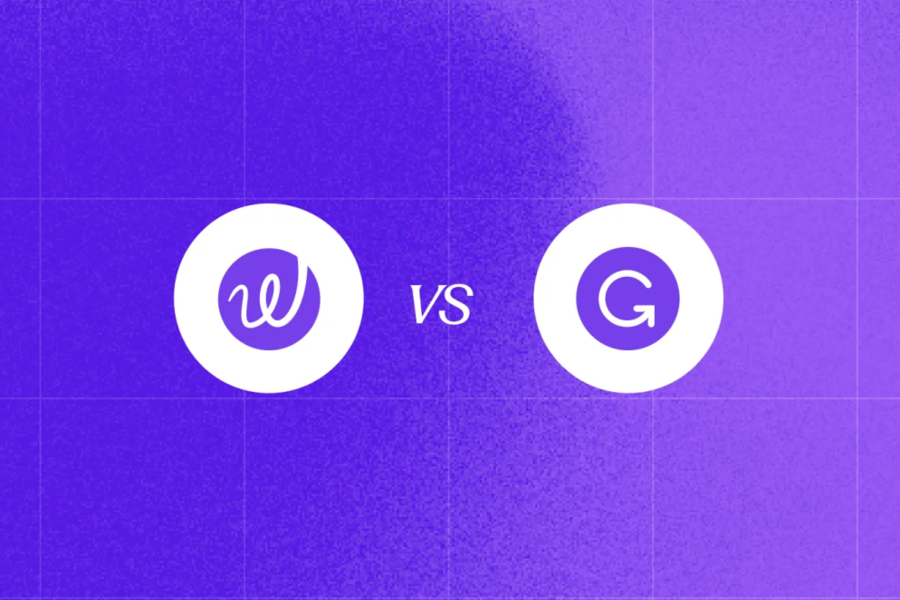We’re living in a time where AI writing assistants can genuinely help—and two of the biggest names leading the charge are Wordtune and Grammarly. The Wordtune vs Grammarly debate isn’t just about fixing typos; it’s about how you want to write, create, and refine your words. Both tools bring something special to the table, but which one is the right fit for you?
Let’s explore what each has to offer, compare their strengths and weaknesses, and help you decide which tool—or maybe even combination—will best support your writing journey.
What is Wordtune?

Wordtune is far more than a standard grammar checker—it’s like having a creative editor sitting right beside you. Built with advanced AI, its main goal is to help you rephrase, refine, and reimagine your sentences. While many tools tell you what’s wrong, Wordtune focuses on what’s possible.
Think of it as your brainstorming buddy. You write a sentence, and Wordtune offers several alternative ways to say it—whether you want to sound more professional, more casual, more persuasive, or just clearer.
It also includes a powerful summarization feature, perfect for condensing articles, reports, or any long-form content into key takeaways. Great for students, content creators, and professionals who regularly need to refresh their language or digest lots of information quickly.
Read our Wordtune review for more details.
Wordtune Pros and Cons
Like any tool, Wordtune has its high points and limitations. Here’s a balanced look:
Pros:
- Excellent paraphrasing abilities that go beyond simple synonym swaps.
- Helps generate new ideas and overcome writer’s block.
- Summarization tool is fast and accurate.
- Supports rewriting at the sentence, paragraph, or section level.
- Focuses on enhancing style and tone, not just correctness.
- More affordable pricing tiers.
Cons:
- Not a dedicated grammar or spelling checker.
- Lacks support for different English dialects (e.g., US vs. UK English).
- No built-in plagiarism checker.
- Doesn’t offer custom style guides for teams.
- No dedicated Android app.
- Limited predefined writing modes (e.g., academic, business).
What is Grammarly?

If Wordtune is your creative co-writer, Grammarly is your meticulous proofreader. It’s best known for its powerful grammar, spelling, and punctuation correction, but it’s grown into a full-scale writing assistant. Grammarly helps ensure your writing isn’t just error-free—but also clear, engaging, and tailored to your audience.
With real-time feedback available across websites, apps, and even desktop programs, Grammarly makes sure your writing is polished wherever you work. It also offers tone adjustments, plagiarism detection, and generative AI help. It’s a trusted tool for professionals, businesses, and students who need precision and reliability.
For more detailed information, continue reading Grammarly Review.
Grammarly Pros and Cons
Grammarly is powerful, but it also has its limitations. Here’s what you should know:
Pros:
- Industry-leading grammar and spelling correction.
- Allows tone adjustment for different audiences.
- Supports multiple English dialects.
- Includes a reliable plagiarism checker.
- Custom style guides available for teams.
- Wide platform availability including iOS and Android.
- High character limit per document.
Cons:
- Pricier than Wordtune, especially for premium features.
- Summarization tool is less robust.
- Free version is very limited.
- Paraphrasing prompts are restricted in the free plan.
Wordtune vs Grammarly: Features Comparison
When it comes to features, both tools shine in different areas. Here’s how they compare in key categories:
Ease of Use & User Interface
Grammarly works largely in the background. Its browser extension and desktop app underline errors and offer suggestions in real time. It’s like having an editor who’s always on duty.
Wordtune requires a bit more interaction. You select text you’d like to improve, and it offers rewrites or expansions. It feels more like a collaborative process—less automated, but more creative.
Integration
Grammarly offers wider integration, including browser extensions, desktop apps, mobile keyboards, and direct integration with Microsoft Word and Google Docs.
Wordtune also works via browser extension and has a web app, but it doesn’t yet have a dedicated Android app, and its native integrations feel less seamless than Grammarly’s.
AI Paraphrasing & Rewriting
Wordtune wins when it comes to rewriting. It delivers multiple phrasing options, from formal to casual, and even includes a “Spicy” mode for creative alternatives.
Grammarly’s paraphrasing is more focused on clarity and conciseness. It improves sentences but doesn’t offer as much stylistic variety.
Grammar and Spelling Correction
This is Grammarly’s strongest area. It catches everything from basic mistakes to advanced grammatical issues and provides educational explanations.
Wordtune includes basic spelling and grammar features, but it’s not its main strength. For deep editing, Grammarly is the better choice.
Plagiarism & Brand Consistency
Grammarly includes a plagiarism checker that scans billions of web pages—essential for academics and professionals. It also allows teams to create custom style guides for brand consistency.
Wordtune does not currently offer plagiarism detection or style guide support.
Summarization
Wordtune’s summarization tool is fast, accurate, and built for processing large amounts of text.
Grammarly offers summarization as well, but it’s not as developed or user-friendly as Wordtune’s.
Wordtune vs Grammarly: Pricing & Plans
Your budget may play a big role in your decision. Here’s a simplified breakdown:
Wordtune:
- Free: 10 rewrites per day, 3 summaries per month.
- Advanced: $13.99 per month, 30 rewrites per day and 15 summaries per month.
- Unlimited: $19.99 per month, unlimited rewrites, summaries, and premium features.
Grammarly:
- Free: Basic grammar and spelling checks.
- Pro: $12/month, full-sentence rewrites, tone suggestions, plagiarism checker, and 2,000 AI prompts monthly.
- Enterprise: Everything in Premium plus team style guides, admin panels, and unlimited AI prompts.
Conclusion on Wordtune vs Grammarly
So, in the debate of Wordtune vs Grammarly, which one is right for you?
Choose Wordtune if you focus on creativity, rewriting, and summarization. It’s ideal for content creators, marketers, and anyone who wants to bring more flair and clarity to their writing.
Choose Grammarly if you need strong grammar checking, plagiarism detection, and tone adjustments. It’s the go-to for students, professionals, and teams that require accuracy and consistency.
And remember—you don’t necessarily have to pick just one. Many writers use Wordtune for brainstorming and rewrites, and Grammarly for final proofreading. Together, they make a powerful writing team.



